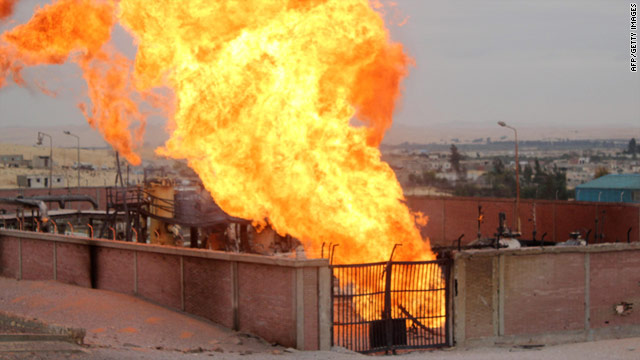CAIRO: This year has seen a substantial change in the Arab world’s assessment of US President Barack Obama, and “remarkably stable views” on the Arab-Israeli conflict and the prospects of its resolution, a poll released on Thursday revealed.
The 2010 Arab Public Opinion Poll also showed that a majority of the Arab population now see a nuclear-armed Iran as being better for the Middle East.
The poll by Shibley Telhami from the Anwar Sadat Professor for Peace and Development at the University of Maryland and nonresident senior fellow at the Saban Center for Middle East Policy at Brookings is produced each year in conjunction with Zogby International.
This year’s poll surveyed 3,976 people in Egypt, Saudi Arabia, Morocco, Jordan, Lebanon, and the United Arab Emirates, during the period of June 29–July 20, 2010.
Only 20 percent of those surveyed described their views on Obama and the US as positive, in comparison to last year’s 45 percent.
Moreover, respondents who described their views as negative have significantly increased to 62 percent this year, compared to last year’s 23 percent.
The poll also examined how Arabs rate specific American policies over the past year of the Obama administration. Policies pertaining to the Palestinian-Israeli were rated as the policies respondents were the most disappointed with.
On the other hand, when asked about policies they were pleased with, “attitudes toward Islam” came in first with 20 percent followed by “economic assistance” at 13 percent.
Reaching a peace agreement in the Israeli-Palestinian conflict and withdrawing from Iraq were cited by the majority of respondents as the two main steps that would improve views of the US.
The attitudes of the sample surveyed towards the American people remained stable from last year with five percent describing it as “very favorable,” 23 percent said “favorable,” 30 percent said “somewhat favorable” and 27 percent said “very unfavorable.”
As for opinions regarding the Arab-Israeli conflict, 55 percent of the respondents said they are “prepared for peace if Israel is willing to return all 1967 territories including East Jerusalem,” but maintained that “Israel will never give up these territories easily.”
Thirty percent said they are “prepared for peace if Israel is willing to return all 1967 territories including East Jerusalem,” adding that “Arab governments should put more effort into this.”
A minority of 14 percent believed that “Even if Israel returns all 1967 territories, Arabs should continue to fight.”
The poll also inquired about the prospects of lasting peace between Israel and Palestine, revealing that 54 percent don’t believe it will ever happen, while another 40 percent said that it’s inevitable but that it will take more time.
The poll also concludes that Arabs have changed their opinions towards Iran and its nuclear program. Despite the international pressure imposed on Iran to curtail its nuclear program, 77 percent believe that Iran has the right to its nuclear program.
Furthermore, 57 percent also believe that if Iran acquires nuclear weapons, the likely outcome for the Middle East would be more positive.
When asked to imagine if there was to be one super power in the world, a majority of 35 percent of respondents gave it to France, in contrast to seven percent saying the United States.
When asked to name two countries that pose the biggest threat to Arabs, Israel came in first with 88 percent followed by US with 77 percent.
Respondents also named the countries, Arab and non-Arab, that are playing the most constructive role in the interest of the Middle East region, with France coming in first followed by Turkey then Saudi Arabia and Egypt.
The poll also showed interesting findings in the section with questions regarding identity. When asked about the most important identity, the majority agreed that it is Muslim followed by Arab as the second most important.
Moreover, 39 percent said governments should base their decisions mostly on what’s best for Muslims, followed by their countries and Arabs.
